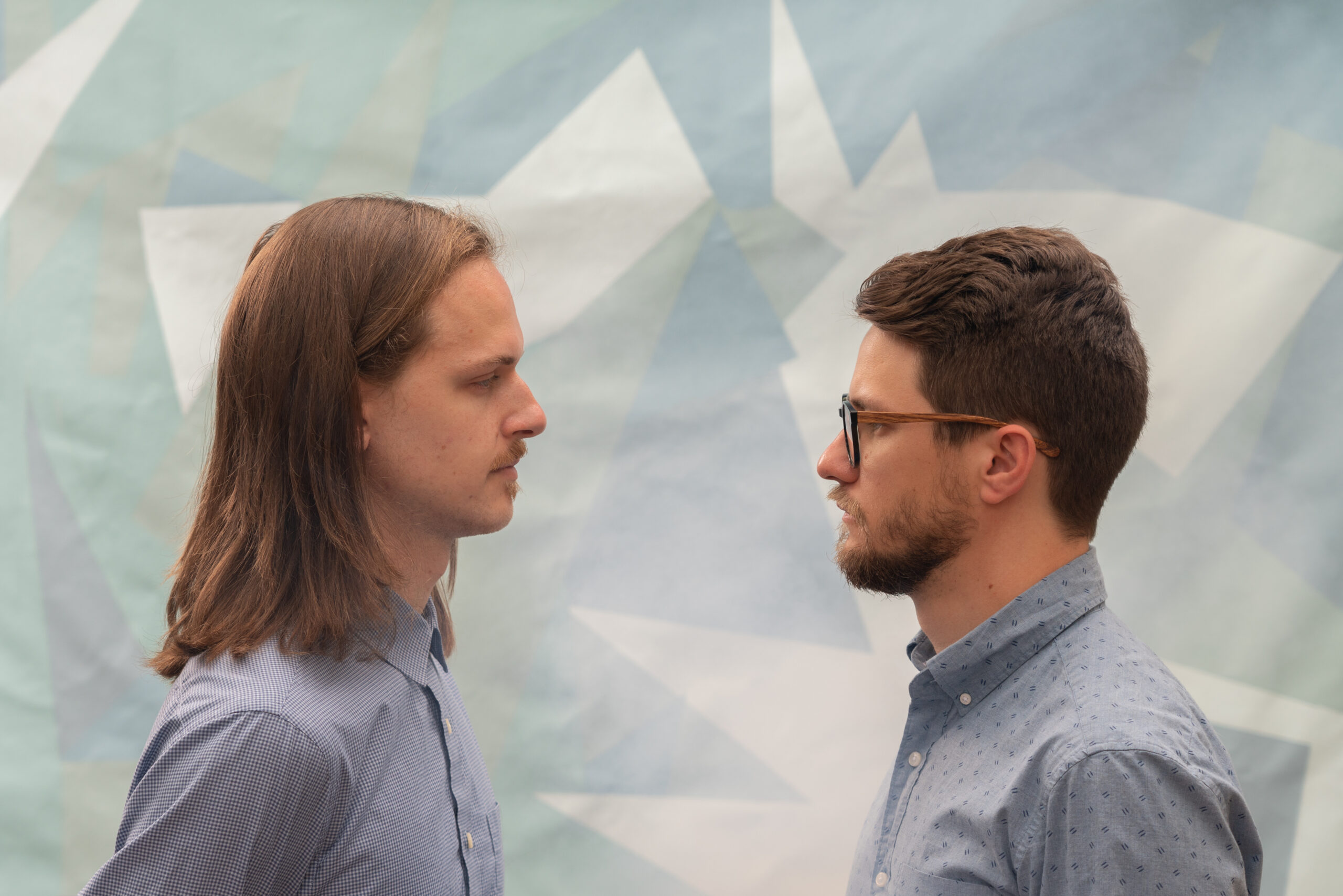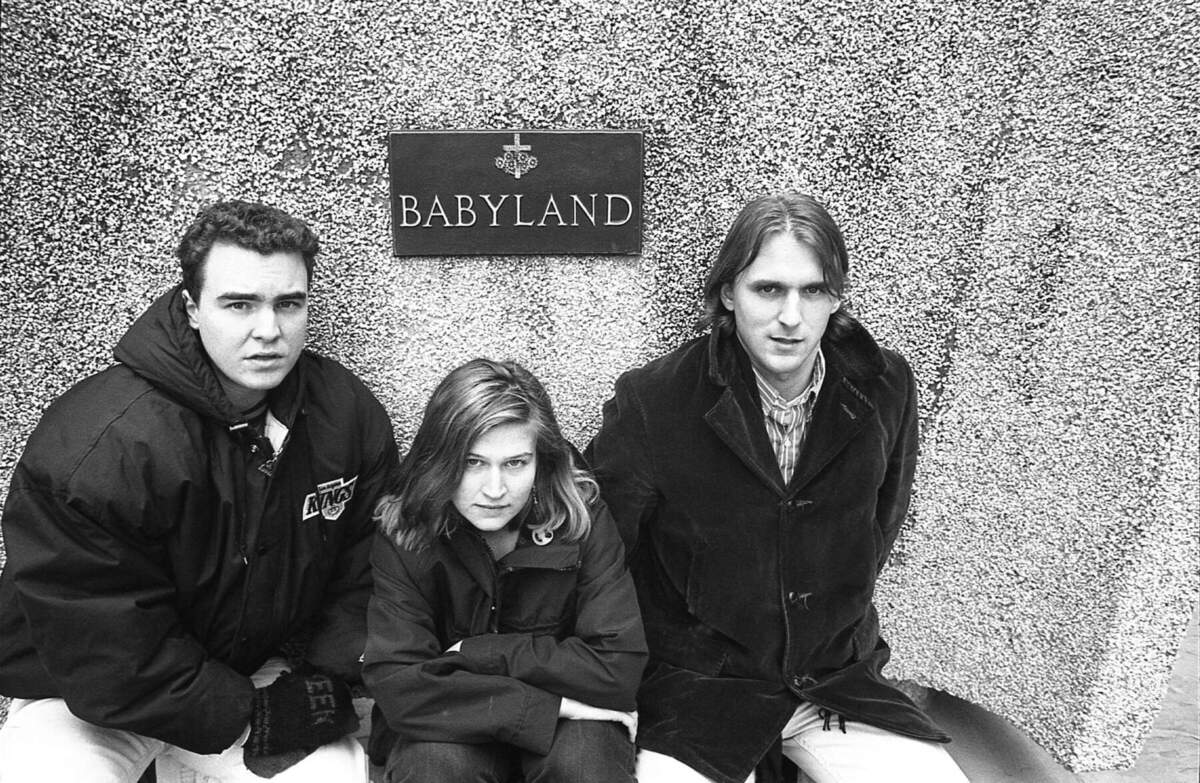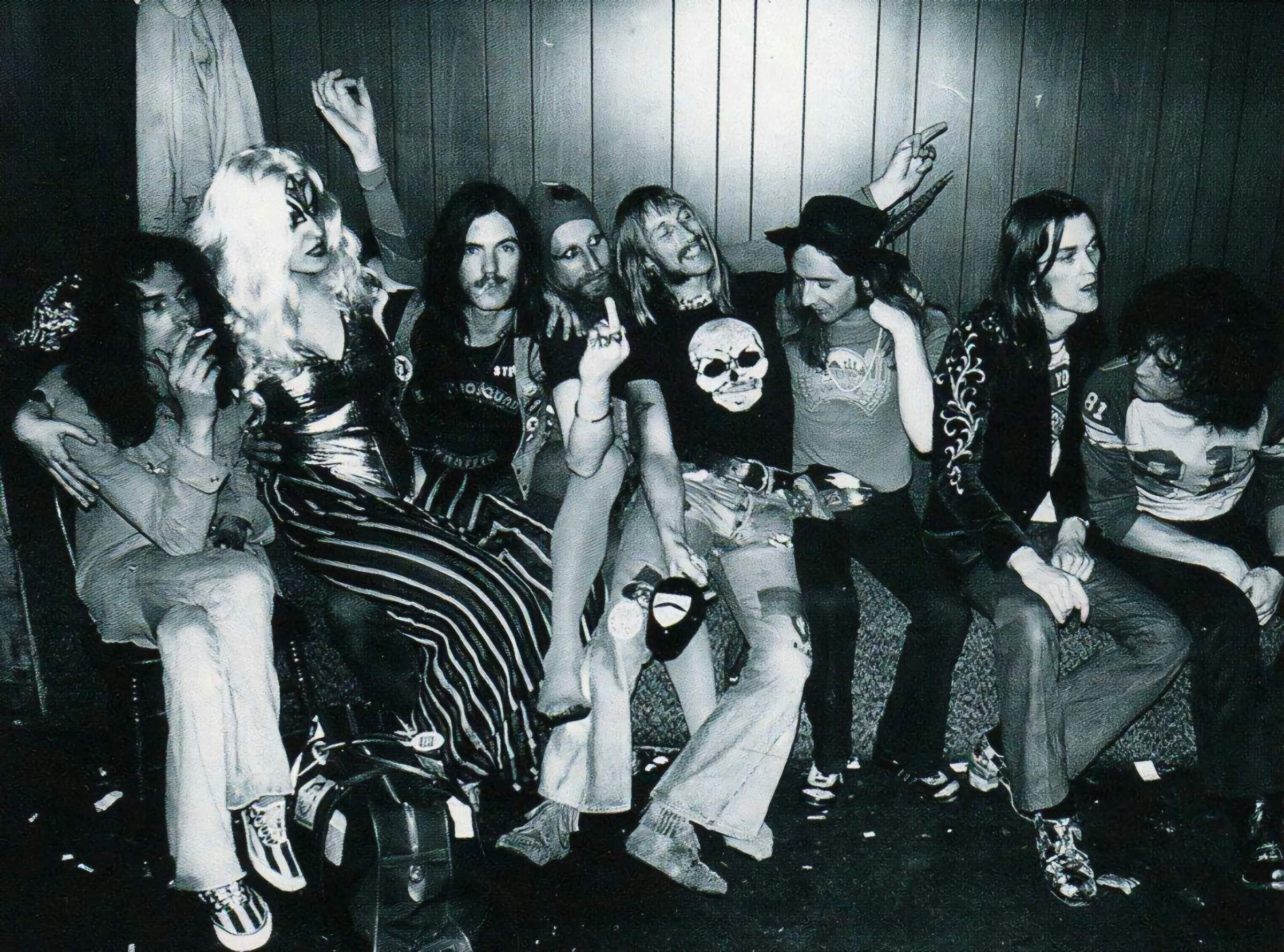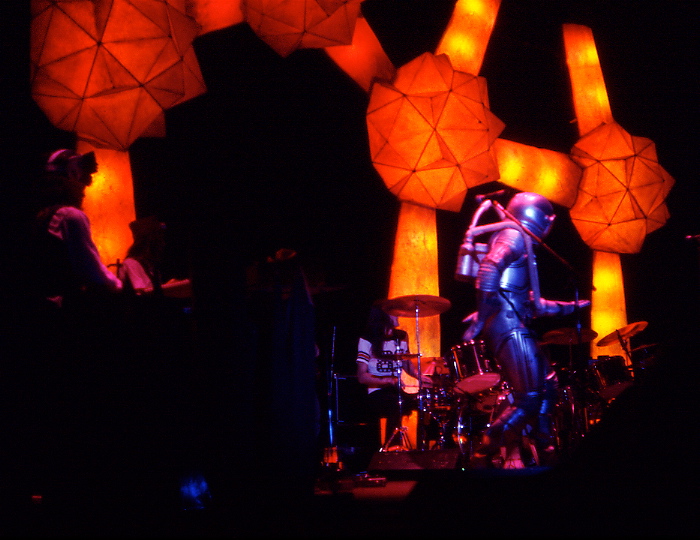‘Undertow’ EP by Paulsen-Shepler | Interview
Paulsen-Shepler is a duo that began locally here in Toledo Ohio. The pair boast big-name credits such as American Horror Story and Queen of Swords, and consists of members Andrew Paulsen (AHS: 1984) and musician-composer-producer Ben Shepler (Q.O.S.).Their newest EP Undertow also features the dulcet vocals of vocals of the Disney World stage performer McKenzie Jo Frazer.
Paulsen-Shepler has been making waves since they released their first track in the spring of 2021. Their plainspoken lyrics, use of symphonic instruments, and welcoming strummy sound pulled me in instantly.
According to Paulsen “Making this album with Ben has been a very personal experience — I think it captures the past two years of my life of leaving Los Angeles, coming to New York, and leaving behind some heartbreak and frenemies along the way. We’re really excited to have people check out Undertow. We set out to make something unique that we wanted to listen to. I think it’s paid off because listeners have reached out and complimented us by saying they don’t know what other artists to directly compare us to. [Laughs] That either means these songs are headed for obscurity or we have something special on our hands.”
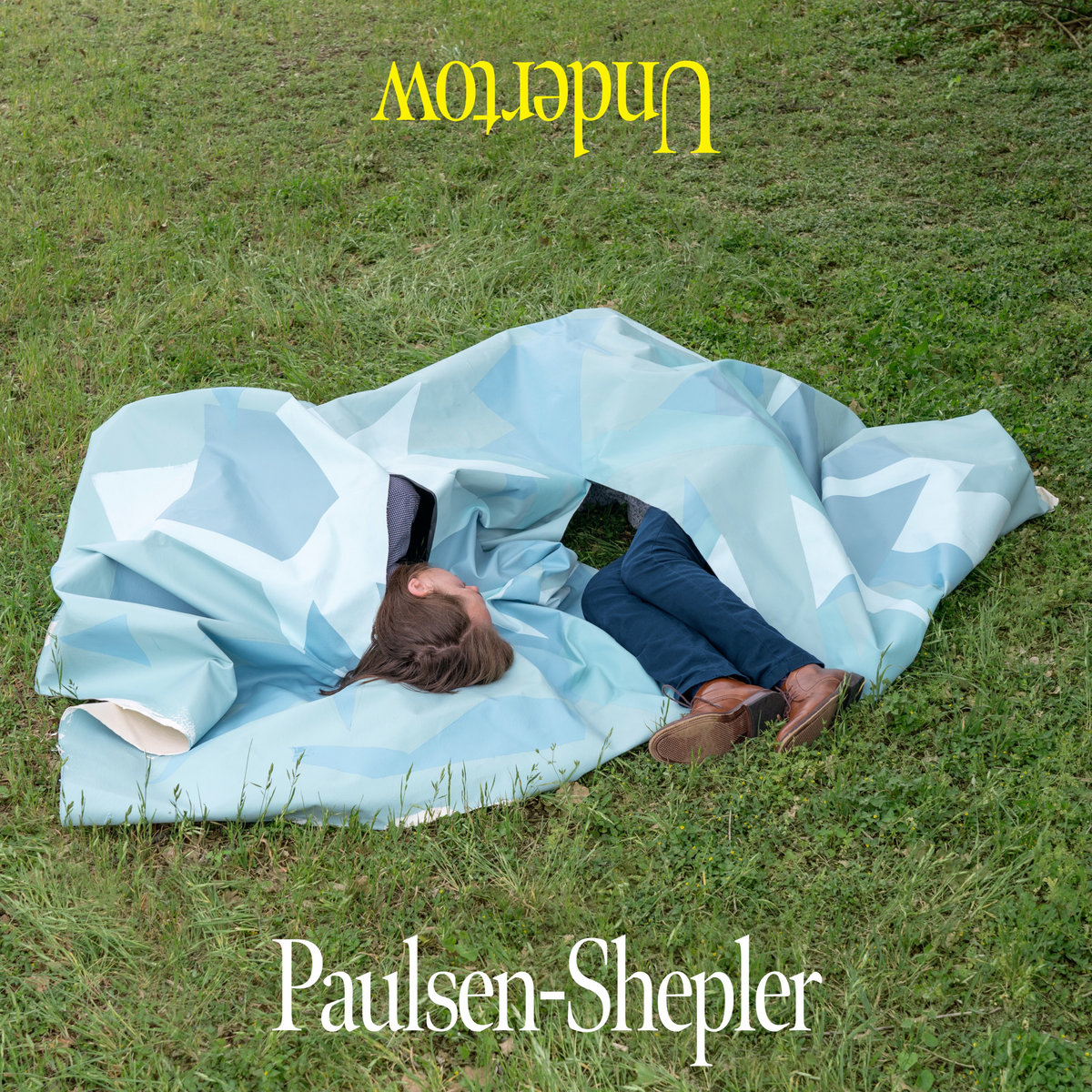
While Shepler remarked “After over a decade of friendship with Andrew, and cheering each other’s artistic ventures on from afar, it was great to join forces and explore how our creativity fueled one another. Andrew’s heartfelt lyrics and catchy songwriting laid the groundwork for the arrangements we were able to create to reinforce the emotion of each track. I had loads of fun layering instrument after instrument, and Andrew was always supportive of upping the harmonic and rhythmic complexity of the songs. We’re really proud of the EP and so excited to share it with the world.”
Undertow’s first track features a silky cello, upbeat ukulele and expressive vocals with perfectly balanced reverb. Given the tasteful upper harmonies and hand percussion, it feels like an old folk song and is Fleet-Fox-Esque.
“Lost and drowning in the undertow
Forgive me, baby
I’m lost and drowning in the undertow”
Next up is the curt and catchy 2-minute tune “On The Long Way Down”. The pervasive set of lyrics reminds us of our humanity, and the bookends of time that are placed around our lives. We’re not limitless, and we should care for one another while we can.
“They can promise me eternity,
But we end up in the ground
So take good care of your neighbors here
On the long way down”
“On the Long Way Down” is dark yet upbeat, and picturesque. The next track “Black Hole” is fittingly, darker than the first two tunes.
“You’re a black hole
Taking your toll
Crushin my spirit, and swallow my soul
Spit out the bits and build me up again”
This is the anthem everyone who has ever been in a toxic friendship or relationship needs to listen to, and take a long walk with. With its sassy horn stabs and tongue-in-cheek overtones, it’s liberating to hear a song about this that doesn’t take itself too seriously.
“Black Hole” transitions to a ska-feeling b-section before things crescendo into a guitar solo. The last chorus with the celebratory end leaves us all chuckling and waving goodbye to whoever the hell did us wrong.
“The Lake” was an unexpected instrumental with echoey haunting piano, violin triplets, and a warm bed of low strings. This epic mid-EP track had me leaning forward in my seat at the peristyle, wondering what was next. The answer was: “East Riverbend”. “East Riverbend” landed us back to the welcoming singer-songwriter feeling with a gentle theme of bidding good riddance to your fears. It’s a feel-good playlist must-have.
The icing on the cake of this was Shepler’s impeccable mixing, and all the tasty, expected chords. Undertow is an intimate album chock full of harmonies and metaphors about humanity.
What both got you (individually) started in music and why? It sounds like you have a lot of classical/orchestral influence.
Paulsen: I grew up in Lutheran churches and an evangelical Christian school, so between the choirs that my parents put me in and many church services, I had plenty of singing to do. I didn’t really appreciate that foundation when I was going through it, but that’s how I realized I actually liked to sing and developed an ear for harmonies from all those hymns and gospel songs.
In junior high my parents bought an acoustic guitar for my older sister and I to share and we both took lessons. I’m very grateful for my parents supporting my musical education! I also have my grandparents to thank. They’d always have the stereo set to classical music on WGTE, the NPR/public radio affiliate in Toledo. I was a ‘90s kid that would willingly listen to Bach as much as I did Backstreet Boys. Fast forward years later and I started writing my own songs and decided I wanted to get them out in the world. Ben happened to be available to collaborate and produce and liked some demos I showed him, so we started recording together.
Shepler: I also grew up Christian, with lots of hymns and praise and worship. My Dad, siblings, and Grandma were really musical and encouraged me to sing from a young age, and joined band in 5th grade, where I played trumpet. In 6th grade, I picked up guitar and started writing songs. A year later, my friends said I could join their drum/guitar duo if I played bass. So I bought a $40 eBay bass, and we started what eventually became The Light Ahead, our pop-punk project for the next 4 years. In high school, I continued writing and learning new instruments, including piano, which unlocked the wonderful world of virtual instruments. Throughout this time I built up a love of choral and classical music, performing in school choirs and singing masterworks like Handel’s Messiah in local groups. I studied choral music in college and since then have really explored orchestra composition for film scoring, which can definitely be heard on this EP.
What is your favorite venue in Toledo, Ohio?
Paulsen: R.I.P. Headliners and The Mill.
Shepler: Yeah, loved both those venues—my high school band was extremely pumped to open for Family Force Five at Headliners back in the day.
What does the album art of Undertow mean or represent?
Paulsen: I turned to my college friend Terran Washington to create a piece of art from his interpretation of “Undertow.” I love his aesthetic — he overlaps shapes and colors that seem simple at first glance but become increasingly complex when you realize how everything intersects. Terran had the idea to bring in our friend Brooke DiDonato to photograph Ben and I with the work he painted. Brooke is an incredible director and puts together these surreal tableaus with her subjects, morphing the human body in uncanny, beautiful ways. As you see we landed on this image of a man or men broken in half and stretched out unnaturally by the Undertow canvas. I don’t know if there’s one singular meaning behind the album cover, but I think it matches the tumult and transformation referenced in the songs. Also, shout-out to Sam Bumbalo for the layout design — I love the retro type and color he used!
Your songs are lushly arranged, and I can tell they take from many genres. How do you begin the songwriting process?
Paulsen: I usually start by playing on my baritone ukulele with some initial phrase that I wrote down or recorded in my voice memos on my phone. By that point I already have an idea of the melody for those early lyrics. I just sing along to find the rest of the melody and fill in words or hum what feels fun and natural with my voice. I used to perform regularly with a musical comedy improv team in Los Angeles called Musical! the Musical that would put on long-form Whose Line Is It Anyway? type shows, so I’ve got reps riffing lines on the spot. Once I’m happy with the basics, I record a scratch track on my iPad and try to flesh out as many ideas and harmonies that I hear in my head using Garageband’s virtual instruments and then share the song with Ben. Then the real work and magic starts!
Shepler: It’s always fun and daunting to hear Andrew’s demos and get started filling out the arrangement. We re-record just about everything he’s already laid down, then add main instruments like drums and bass. From there we bounce ideas off one another for additional parts. We really strive to have something new or interesting happening every few bars. I never like to let a song feel like it’s coasting.
Where do you take your lyrical inspiration from?
Paulsen: Tom Petty, Billy Joel, Bernie Taupin, Taylor Goldsmith, and Phil Collins. I love their wit and introspection, storytelling, and ability to transform raw emotions into unforgettable hooks and choruses.
McKenzie Jo Frazer has such a beautiful timbre. How did you end up collaborating with her on the EP?
Paulsen: There’s a short story to this, but I’ll tell the long one.
McKenzie trained in opera in college and has performed live musical theater in Orlando for six years. She’s collaborated with Ben before on multiple recordings like the Queen of Swords EP and was game to sing on “Undertow” and “Black Hole” when we asked her. I’m very fortunate to have her as a friend and have her singing on the album!
Shepler: McKenzie and I met in music school and happened to be in the same voice studio. I was enamored of her voice when I first heard her perform, which led me to introducing myself, and now she’s my wife, so I get to use her on all my projects!
“The Lake” is a heart-rending instrumental that is markedly different than the other tracks on Undertow. It sounds like it has a lot of meaning behind it. What’s the story?
Paulsen: It actually started as theme music to a psychological horror film idea that dealt with nostalgia, guilt, regret, and water, haha. As the EP started to take shape, I felt that Ben’s orchestration and the shared aquatic motif with “Undertow” — and later “East Riverbend” — made it make sense to include “The Lake” on the album. My piano part was inspired by John Carpenter’s Halloween and Basil Poledouris’s Free Willy scores. I know it probably sounds ridiculous mentioning those movies together in the same sentence but both composers are amazing and huge influences on me!
Shepler: Definitely a different feel than the other tracks! Andrew wrote and played the piano part, which drives the entire song. I used Spitfire Audio’s Albion Tundra for the strings pretty extensively. They sampled players using unique articulations and practice bows with no rosin, which gives the strings an icy, ethereal sound that fit this composition perfectly. Everything builds to this bombastic string/brass march section two-thirds through, then it all falls away, back to our serene starting point.
Paulsen-Shepler Website / Instagram
Anenotano Records YouTube

